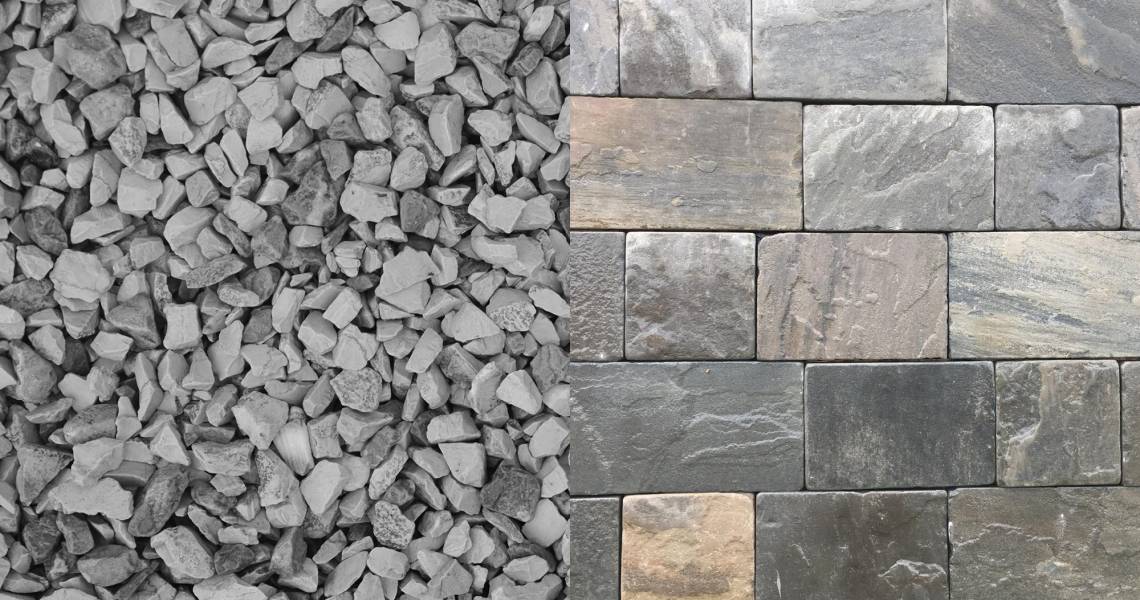Deciding on the right material for your driveway can be a minefield. You want your driveway to be hardwearing, low maintenance, and you want it to look beautiful for many years to come. You also want your choice of material to fit in seamlessly with your property, because curb appeal matters!
So what’s better for driveway installation – cobble / setts or a gravel stone driveway? We discuss the pros and cons of both below.
Choosing cobble / setts your driveway
Cobble / setts refers to small blocks of paving material made from natural stone. This is an attractive and high durable surface option for driveways.
Additionally, this style of driveway can complements other areas of paving outside your home, adding to the overall aesthetics and curb appeal. If you’re looking to create continuity, cobblestone can also be used to edge circles and flowerbeds, and it’s also useful for awkward spaces where cutting stone can prove to be difficult.
Our cobble / setts are 30mm to 50mm in thickness and cut to size for your application. We also have premium Italian porcelain cobbles available, a non-porous driveway option that is stain and frost resistant – and also resistant to bacteria, algae, moss and mildew!
Limitations of cobblestone:
Installing a cobblestone driveway can be costly and labour-intensive, but due to the durability of this paving option, it can be worth the time and investment.
The benefits of a gravel driveway
A gravel stone driveway is another fantastic option that looks great, with a nice range of colours to choose from. Lighter gravel can instantly brighten up the outside of your home, while yellow-toned hues can add warmth, and darker gravel can appear stylish and refined.
The options are endless, but one of the main benefits of a gravel driveway is the low cost. So if you have a lot of square footage to cover, this could be the solution for you. As well as gravel driveway costs being more affordable, aggregates are easy to order and install.
The loose stones give you maximum drainage, and regular maintenance can keep your gravel stone driveway looking tip top for years to come.
Limitations of gravel stone driveway:
While there are many benefits of a gravel driveway, one of the downfalls is having to deal with weeds. Proper upkeep is essential – make sure you spray weed killer over the surface several times a year, and re-gravel every two to three years.
Gravel is also not recommended if your driveway is sloped, as aggregates will naturally roll downhill whenever someone drives over it or when there’s bad weather.
Using gravel and cobblestone together
It can often be hard to choose between paving and gravel. With the low gravel driveway costs, gravel can usually be the better option for a tight budget. But it’s also possible to use both to create a unique exterior finish.
Aggregates are an excellent option for dividing up sections of a large driveway, or can be used to edge around your property. Mixing paving and gravel can create an interesting aesthetic, adding depth and dimension, and giving you the best of both worlds.
Still not sure whether gravel or paving is right for you? Take a look at our inspiration page to see what our customers are doing. Or get in touch with our team for product support and pricing.
